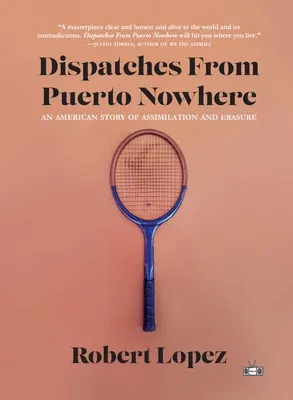"That I was born Puerto Rican was happenstance, but that I have no
connection to what it means is no accident. My grandparents made
conscious decisions and so did my father as part of the first generation
born here in the States. And none of it bothered me until recently,
which is probably why I can't quite put my finger on any of this. I'm
still grappling with what I've lost and how I can miss something I've
never had."
Robert Lopez's grandfather Sixto was born in Mayaguez, Puerto Rico, in
1904, immigrating to the United States in the 1920s, where he lived in a
racially proportioned apartment complex in East New York, Brooklyn,
until his death in 1987. The family's efforts to assimilate within their
new homeland led to the near complete erasure of their heritage,
culture, and language within two generations.
Little is known of Sixto--he may have been a longshoreman, a painter, or
a boxer, but was most likely a longshoreman--or why he originally
decided to leave Puerto Rico, other than that he was a meticulously slow
eater who played the standup keyboard and guitar, and enjoyed watching
baseball. Through family recollection, the constant banter volleyed
across nets within Brooklyn's diverse tennis community, as well as an
imagined fabulist history drawn from Sixto's remembered traits, in
Dispatches From Puerto Nowhere: An American Story of Assimilation and
Erasure**,** Robert Lopez paints a compassionate portrait of family
that attempts to bridge the past to the present, and re-claim a heritage
threatened by assimilation and erasure.

